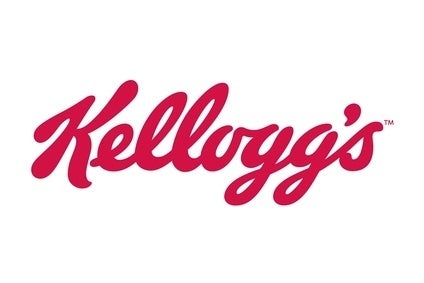
Breakfast is still proving to be a challenge for Kellogg, which cut its forecasts for annual sales and earnings after reporting lower revenues and profits for the second quarter.
In a call with investors yesterday (31 August), Kellogg pointed out it was still seeing a decline in cereal sales in its core US market, a continuation of a trend seen over the past several months.

Discover B2B Marketing That Performs
Combine business intelligence and editorial excellence to reach engaged professionals across 36 leading media platforms.
Despite the 2011 acquisition of Pringles, cereal is still central to Kellogg’s business and the company has suffered in the last few quarters from consumers, particularly in the US, hunting out other options for breakfast.
In a bid to revitalise its cereal sales, Kellogg has decided to undertake a root-and-branch restructuring of its production network to try to free up resources for investment in its cereal brands.
The last year has seen Kellogg announce plans to close a cereal plant in Canada and cut production at a site in the UK. These closures, plus moves to shut snacks facilities, as well as invest and build others are, Kellogg chairman and CEO John Bryant, “designed to ensure we have the right capacity in the right locations” to meet demand.
However, Kellogg has committed to investing the savings from the restructuring – dubbed Project K – back into its brands – and analysts were keen to hear what moves the company had made so far, given sales are still under pressure.

US Tariffs are shifting - will you react or anticipate?
Don’t let policy changes catch you off guard. Stay proactive with real-time data and expert analysis.
By GlobalData“We are still reinvesting the savings that we committed associated with Project K behind the cereal category relevance messaging, and also behind sales resources across our US cereal and our US snacks business,” CFO Ron Dissinger said.
Bryant added: “Specifically to cereal, we do expect the category to improve slightly as we go through the back part of the year, and our performance to be more in line with the category. Clearly, we’ve been a bit off that pace in the front half of the year. A few things that we’re doing to drive that, I mean, we do have the feet on the street going back into a US cereals organisation. By October, we should be fully staffed. I think they will help us improve our performance. And we are really focused on improving and driving our cereal business as we go into 2015.”
The Kellogg chief said long-time company executive Paul Norman had been moved to head the US morning foods business. Norman, Bryant said, would lead moves to “re-stage” Kellogg’s cereal arm in the market.
“We need to have all guns loaded going to 2015. We need category-building activity, brand-specific activity, large tent-pole events in-store, which enable us to execute in-store with excellence. Innovation or renovation is on trend for where consumers are heading, and put the feet back on the street in terms of improve the merchandising support behind the business.”
Kellogg is also banking on the idea of cereal as a snack as opposed to just being a breakfast option. Bryant told investors there would be an increased “focus on evening snacking beginning in the fourth quarter”.
The firm also identified problem areas within its cereals portfolio and highlighted the need for a rethink in approach to the market with Special K and Kashi.
“Special K continues to be impacted by the evolving consumer trends affecting weight management brands in general. As a result, we are actively repositioning the brand and emphasising the presence of positive nutrition like protein, fiber, grains and other relevant nutritional benefits,” said Bryant.
“We think this is a tremendous business with tremendous opportunity, however I think we need to change how we communicate the benefits of Special K as people’s expectations of weight management changes around the world”.
With Kashi, Bryant said Kellogg was suffering from a lower distribution but also its lack of “ability to execute quickly enough in the evolving world of natural and organic food”. He added: “We haven’t kept Kashi focused enough on progressive nutrition.”
Kellogg is making moves to rectify the issues. With Kashi, Kellogg has reinstated David Denholm who ran Kashi in the 2000s to the position of CEO. Kashi will act as an autonomous business within the Kellogg family and the focus is “on returning the brand to the leading edge of the natural and organic food world”, Bryant said.
The company also hinted at further product development to try to boost sales, not just in cereals, but across its business. However, as Lash noted, Kellogg’s recent track-record on innovation needs to improve. “Management noted that some of its new products have fallen flat with consumers, namely within the cereal aisle as brands such as Mini-Wheats Crunch, Crunchy Nut, and FiberPlus proved to be a drag. competitive pressures persist, and Kellogg will need to ensure that its products win with consumers or face further top- and bottom-line deterioration,” she said.





